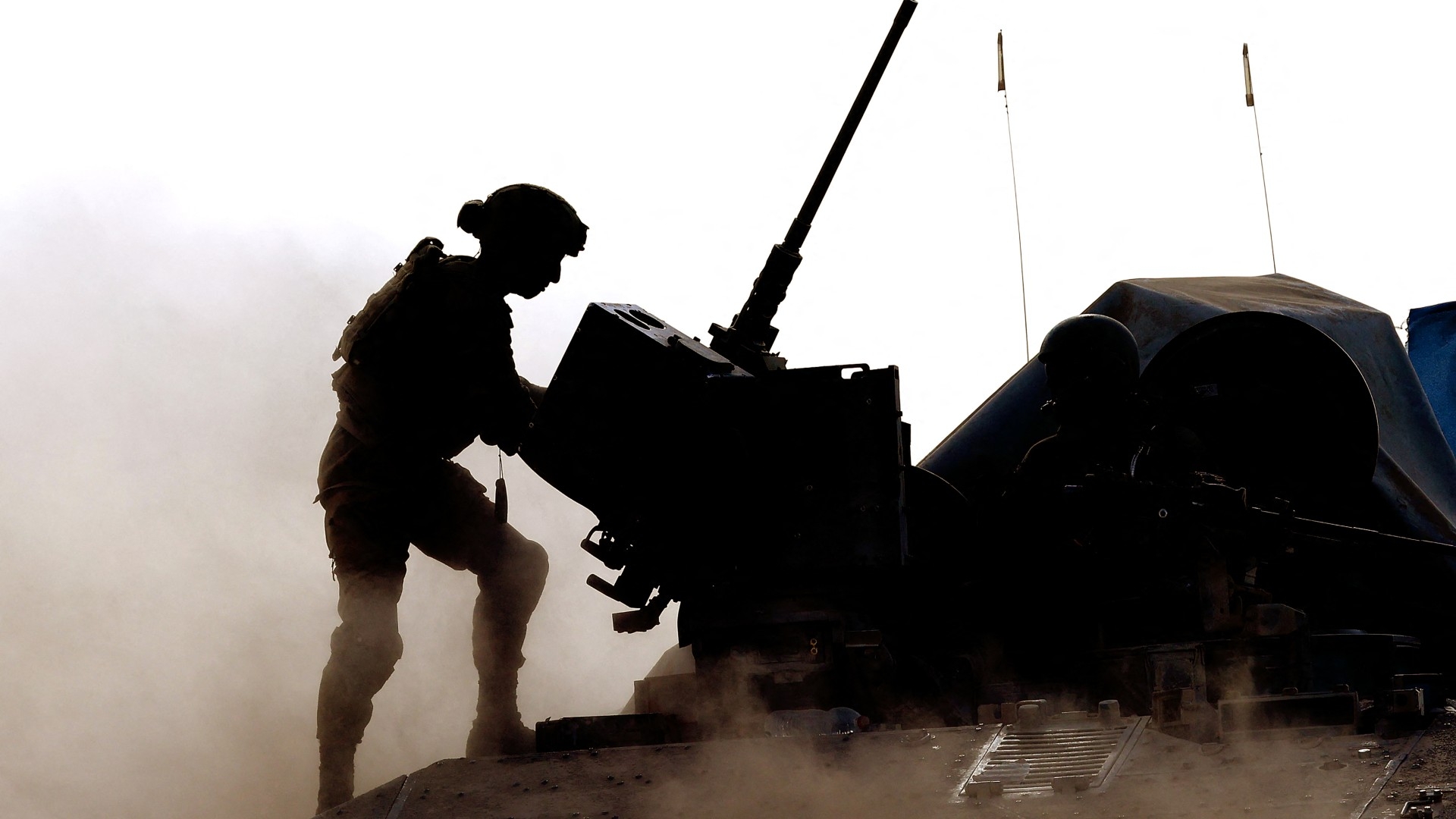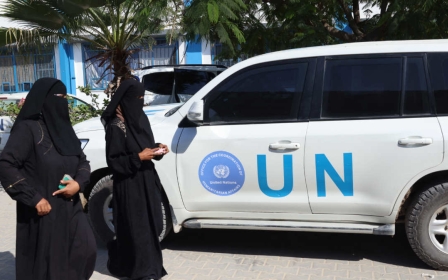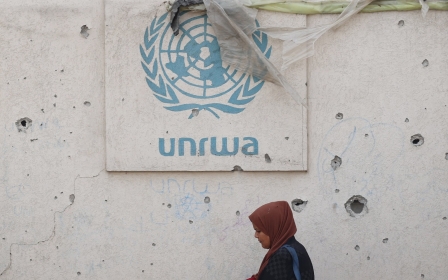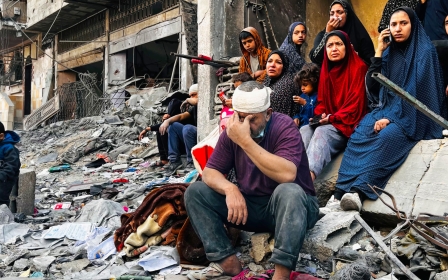How many other Shuva’el Ben-Natans are in Gaza now, fired up with enthusiasm?

This is an article by Sebastian Ben-Daniel, an Israeli academic and writer often known as John Brown. It was originally published in Haaretz’s Hebrew edition and has been translated by Middle East Eye without editorial changes. Ben-Daniel is a lecturer in computer science at Israel’s Ben Gurion University of the Negev and contributes to +972 magazine and Haaretz, among others.
Someone “normal”, in the dictionary definition, is an ordinary guy, rational: not abnormal. Accounts of the funeral of the soldier Shuva’el Ben-Natan seem abnormal to me.
Eulogising him, his brother said: “We want revenge! You entered Gaza to take revenge on as many people as possible, women, children, anyone you saw, as many as possible, that’s what you wanted. And on this day, a year after that day of Simchat Torah, thinking we would slaughter the enemy, slaughter them all, expel them from our land here… All the people of Israel will be entitled to take revenge for your death, blood revenge, not revenge by burning houses, not revenge by burning trees, not revenge by burning cars, but blood revenge for the blood of [God’s] servants spilled.”
Then one of his fellow soldiers added: “You were the happiest, the most optimistic and the goofiest person in the unit. We first saw this in Gaza when you burned a house down without permission, for the atmosphere.”
His friend Shlomi concluded, “I promise you, we will enter Lebanon again, and Gaza, and every village in Samaria, and we will take revenge, and we will fight to the end and we won’t stop. When you were in Gaza, they called you ‘Shuvi the Madlik’ [madlik in Hebrew means someone who sets something on fire but also, in slang, a great guy] because when you came out of a house you would set it on fire. And we will burn - what will we burn? Shubik, what shall we burn? Let them start feeling afraid! Until redemption comes - we will fight all the way to the Temple Mount!”
New MEE newsletter: Jerusalem Dispatch
Sign up to get the latest insights and analysis on Israel-Palestine, alongside Turkey Unpacked and other MEE newsletters
All the mainstream Israeli media that covered the funeral cut these segments. In a long piece in the Friday night newscast Ulpan Shishi, Ruti Shiloni reported only the eulogies that not did not include confessions of war crimes. The latter evidently did not strike her as unusual or newsworthy.
Subsequent reports addressed the coopted media in Iran and Al Jazeera journalists suspected of being Hamas fighters, and then TV presenter Danny Kushmaro in a normal journalistic act detonated the explosives that blew up a house during a broadcast.
While on leave from the army exactly one year ago, Shuva’el Ben-Natan shot and killed Bilal Saleh, 40, while he was picking olives near his home. Saleh was unarmed and posed no mortal threat to anyone, but Ben-Natan shot him to death.
During October of last year, this was a modus operandi among many settlers in the West Bank, who capitalised on the 7 October massacre to torment Palestinians during the olive harvest. Samaria regional council head Yossi Dagan hastened to declare on that Saturday that nothing had happened. Dagan is a close associate of Ben-Natan's father, who runs the Rechelim Yeshiva from which the killers of Aisha a-Rabi came.
In his eulogy, the young Ben-Natan’s friend had a different take on that story: “I was so in awe of you. There were damned militants there, terrorists, that the wretched IDF... allowed to approach the settlements. You shoot, you speak up, you kick them out... They [the authorities] didn't even interrogate the Arabs.”
Although the case remains open, and although Ben-Natan told people close to him that he wanted to murder women and children, he was subsequently sent to fight in Gaza. To make the guys in the reserves happy, he burned down a house - probably more than once, hence the nickname Shuvi the Madlik.
No one witnessing this thought it was a problem; on the contrary, Ben-Natan was normal and well-liked. The IDF evidently thought so, too, because after Gaza they sent him to Lebanon. The tragic coincidence from his standpoint is that, had he not been granted immunity for killing Bilal Saleh, he would most likely be alive today. Under arrest, but alive.
If the things said at the funeral were scripted in a satirical skit about a religious group, they would be termed antisemitic. But to the people at that funeral, among them a government minister who proposed dropping an atom bomb on Gaza, the eulogies sounded perfectly normal. The same goes for the soldier’s friends and the IDF officers present. Not just normal, but reasons for pride, notable in his obituary and in how Ben-Natan should be remembered: as the guy determined to murder women and children, the more the better, a guy who goofed around by burning houses.
In today’s IDF, how many Shuva’el Ben-Natans are there who have set out to take revenge and murder children – specifically, right now, in Gaza?
Does anyone still think that the mass killing in Gaza is not due, at least partly, to the same thirst for revenge that animated the eulogies at the funeral of Shuva’el Ben-Natan?
According to recent investigations by leading foreign journalists, quite a few. Ample evidence has accumulated of children being shot in the head and chest. In Israel, of course, this is received with the usual claims: it did not happen, it’s fake news. And if it did happen, it was unintentional. Or if it wasn’t unintentional, the guy was a bad apple, why generalise? And anyhow there are no innocents in Gaza, and the guilty party is Hamas.
But these are neither bad apples nor fools. A religiously observant Israeli Jewish soldier, in a pogrom in the village of Um Safa, set fire to a house with a family inside, bracing a chair against the door to ensure that a mother and her children would be burnt alive. Is he in Gaza right now?
Aviad Frija proudly verifies for the media that he indeed killed a person who had laid down his weapon (unfortunately it turned out that the victim was Jewish). Will he end up serving in Lebanon due to the shortage of combat soldiers?
Three soldiers in the Kfir Brigade shoot to death a child in a car and are acquitted because the weapons were not tested. An officer sprays from a bridge on Road 443. A soldier shoots a baby in a village in the West Bank because he saw car headlights. The “mosquito procedure” forces Gaza civilians to become human shields for soldiers searching Hamas’ tunnels because the lives of Gazans are worth less than a drone battery. Religious Zionist officers call for the destruction of villages and starvation for civilians and are then offended when they are called “death eaters”.
Does anyone still think that the mass killing in Gaza is not due, at least partly, to the same thirst for revenge that animated the eulogies at the funeral of Shuva’el Ben-Natan?
“You entered Gaza to take revenge as much as possible, on women, on children, on everything you saw. That’s what you wanted.”During the funeral of Shoval Ben Nathan — an Israeli soldier killed in Lebanon last Wednesday — his brother, Uriah Ben Nathan, mourned his death and stated… pic.twitter.com/sYhSctB5u1
— Middle East Eye (@MiddleEastEye) October 26, 2024
Since last October, many settlers have been recruited into local civil defence units and issued weapons by the military. Wearing Israeli army uniforms and carrying Israeli army weapons, these settlers have perpetrated countless ideologically motivated attacks against Palestinian residents in the occupied territories. The police do not investigate because the suspects are “soldiers”. Nor does the army investigate, because these incidents “are not a military activity”. And the violence rages on, while oversight falls between the cracks.
In today's Israel, ministers call unhesitatingly for ethnic cleansing, people celebrate death on the internet, soldiers burn houses and their friends are entertained
On Friday, a Hezbollah rocket killed two civilians in the village of Majd al-Krum, an Arab community. In comments on the media reports, readers heaped praise on the missile that had killed residents who were unlucky enough to be Arabs, and this response has become the norm. Commenting openly, using their full names, readers stated that “two people [died] – that’s nothing”, “it’s unclear why the post is so glum”, and much more along the same lines.
Of course, if an Arab schoolteacher had written anything remotely like that on social media, she would have been arrested and blindfolded. Arab mourners at funerals who have called explicitly for murder have been treated summarily like a ticking bomb.
But in today's Israel, ministers call unhesitatingly for ethnic cleansing, people celebrate death on the internet, soldiers burn houses and their friends are entertained, and an entire public prefers to abandon hostages to torture provided they get a piece of land in Gaza for themselves.
From the hate weddings of a decade ago we have now graduated to hate funerals - and there is not the slightest shred of an investigation, perhaps suggesting that something unusual might be happening. Maybe the Jewish terrorists are in fact the normal ones here, and the few folks who are shocked are the ones who are crazy.
Middle East Eye delivers independent and unrivalled coverage and analysis of the Middle East, North Africa and beyond. To learn more about republishing this content and the associated fees, please fill out this form. More about MEE can be found here.





